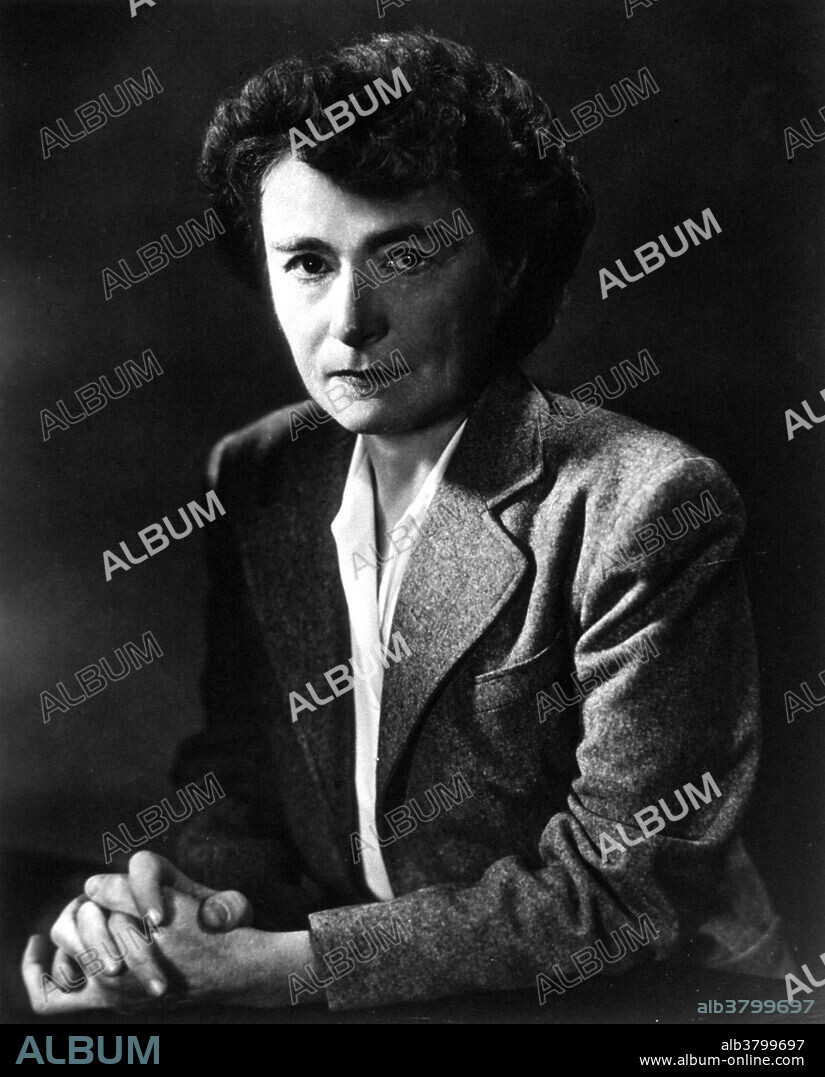alb3799697
Gerty Cori, American Biochemist

|
Ajouter à une autre Lightbox |
|
Ajouter à une autre Lightbox |



Avez-vous déjà un compte? S'identifier
Vous n'avez pas de compte ? S'inscrire
Acheter cette image.
Sélectionnez l'usage:

Titre:
Gerty Cori, American Biochemist
Légende:
Traduction automatique: Gerty Theresa Cori (15 août 1896 - 26 octobre 1957) était une biochimiste américaine qui est devenue la première femme américaine à remporter un prix Nobel de physiologie ou de médecine. Avec son mari Carl et le physiologiste argentin Bernardo Houssay, Gerty Cori a reçu le prix Nobel en 1947 pour la découverte du mécanisme par lequel le glycogène, un dérivé du glucose, est décomposé dans le tissu musculaire en acide lactique, puis resynthétisé dans le corps et stocké comme source d'énergie (connu sous le nom de cycle de Cori). Ils ont également identifié l'important composé catalyseur, l'ester de Cori. En 2004, Gerty et Carl Cori ont tous deux été désignés ACS National Historical Chemical Landmark en reconnaissance de leurs travaux visant à clarifier le métabolisme des glucides. En 1957, Gerty Cori est décédée après dix ans de lutte contre la myélosclérose. Elle est restée active dans le laboratoire de recherche jusqu'à la fin. Elle a été reconnue pour ses réalisations par de nombreux prix et distinctions. Le cratère Cori sur la Lune porte son nom
Gerty Theresa Cori (August 15, 1896 - October 26, 1957) was an American biochemist who became the first American woman to win a Nobel Prize in Physiology or Medicine. With husband Carl and Argentine physiologist Bernardo Houssay, Gerty Cori received the Nobel Prize in 1947 for the discovery of the mechanism by which glycogen, a derivative of glucose, is broken down in muscle tissue into lactic acid and then re-synthesized in the body and stored as a source of energy (known as the Cori cycle). They also identified the important catalyzing compound, the Cori ester. In 2004, both Gerty and Carl Cori were designated an ACS National Historical Chemical Landmark in recognition of their work in clarifying carbohydrate metabolism. In 1957, Gerty Cori died after a ten year struggle with myelosclerosis. She remained active in the research laboratory until the end. She has received recognition for her achievements through multiple awards and honors. The crater Cori on the Moon is named after her.
Crédit:
Album / NLM/Science Source
Autorisations:
Taille de l'image:
2910 x 3611 px | 30.1 MB
Taille d'impression:
24.6 x 30.6 cm | 9.7 x 12.0 in (300 dpi)
Mots clés:
AMÉRICAIN • BIOCHIMIE • BIOCHIMISTE • CÉLÈBRE • CELEBRITE • LAUREAT DU PRIX NOBEL • NOBEL • PERSONNAGES • PERSONNALITÉS • PERSONNE • PORTAIT • PORTRAIT • POTRAIT • PRIX NOBEL • RECHERCHE • XXE SIECLE


 Pinterest
Pinterest Twitter
Twitter Facebook
Facebook Copier le lien
Copier le lien Email
Email
